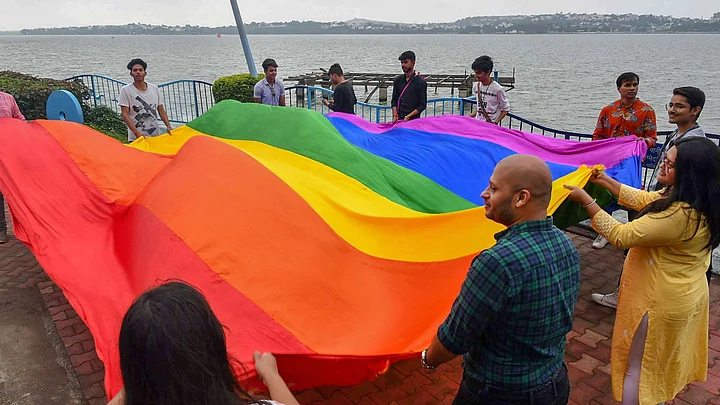On 6 September 2018, the Supreme Court of India delivered a historic judgment – the apex body decriminalised a British-era law that had criminalised homosexual relations in the country.
The matter was heard for four days by a Constitution bench comprising then-Chief Justice Dipak Misra, Justice Rohinton Nariman, Justice DY Chandrachud, Justice AM Khanwilkar, and Justice Indu Malhotra.
The Supreme Court read down Section 377 of the Indian Penal Code (IPC), which criminalised "carnal intercourse against the order of nature with any man, woman or animal." This law covered any sexual act that was not heterosexual penetrative sex, regardless of consent.
The court overruled the regressive Koushal judgment of 2013, which had upheld Section 377.
The then-Chief Justice Dipak Misra had noted, “I am what I am. So take me as I am. No one can escape from their individuality."
Justice DY Chandrachud had observed that people from the LGBTQ+ community have equal rights as other citizens and said that, "human sexuality cannot be confined to a binary," legitimising the identity and lived experiences of thousands in the country.
Justice Indu Malhotra had observed, "History owes an apology to members of LGBT community and their family members for ostracisation and persecution they faced because of society's ignorance that homosexuality is a natural trait, its penal suppression infringes a host of fundamental rights."
Menaka Guruswamy and Arundhati Katju, the Supreme Court lawyers who led the legal fight to scrap Section 377 of the IPC, came out as being a couple in 2019.
Scores of people across the country took out pride parades in celebration of the landmark judgment and the streets were filled with colour on 6 September 2018.
(At The Quint, we question everything. Play an active role in shaping our journalism by becoming a member today.)
